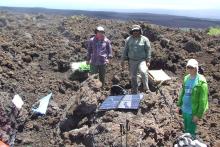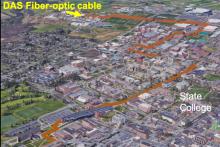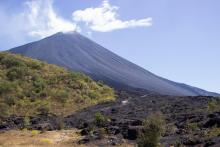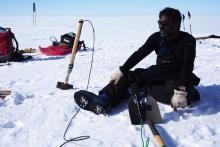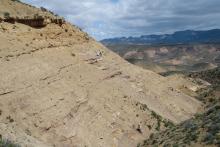The Penn State Water Council has announced the agenda for the 2021 Water Forum, which will take place virtually on the afternoons of Wednesday, March 24, and Thursday, March 25.
Scientists are using networks of ground-based seismic and GPS monitoring stations and satellite observations to observe the Sierra Negra.
Buried interview from 1963 with Walter Friedrich helped shine some light on the German scientist’s vital yet forgotten role in a Nobel Prize-winning discovery.
Scientists are using fiber-optic distributed acoustic sensing (DAS) technology to turn existing telecommunication infrastructure that is already installed underground into a valuable resource for monitoring ground vibrations.
The tiniest of fossils hold a lot of information for scientists to use to recreate past climates. Katherine Freeman, Evan Pugh University Professor of Geosciences at Penn State, will discuss the molecular signatures of ancient climates at 11:15 a.m. on Wednesday, Feb. 17.
A method to detect long-term movements of these mountains using satellite images could help identify previously overlooked instability at some volcanoes, according to Penn State scientists.
The Earth System Science Center has announced the lineup for its spring 2021 Climate Dynamics seminar series.
Sridhar Anandakrishnan, professor of geosciences at Penn State, will give an overview of Thwaites Glacier and discuss the prospects for sea-level rise from this and similar glaciers at 11:15 a.m. Wednesday, Jan. 27.
Jesse Reimink remembers the first time someone planted the Earth science seed that for him blossomed into a career in the geosciences.



